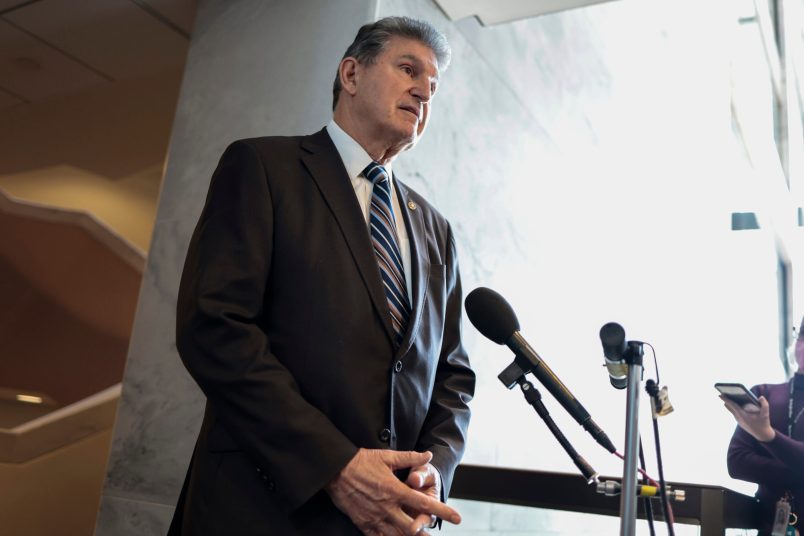Sen. Joe Manchin (D-WV) sounds unmoved from his filibuster positioning of months past, telling reporters Tuesday that the nuclear option would be a “heavy lift” and that rule changes with Republican buy-in are his “absolute preference.”
After Manchin brought the Build Back Better reconciliation bill to the brink of death, Democrats scrambled to refocus on another issue where he plays a starring role: voting rights.
Neither of the Democrats’ two key pieces of voting legislation will pass while the filibuster demands a 60-vote threshold, requiring 10 Republicans to join with the 50 Democrats to pass a bill. So Democrats have returned to the same conversation with Manchin they’ve been having off and on since the session began: trying to sell him on filibuster reform.
“The reason I say it’s a heavy lift is that once you change a rule, or you have a carveout — I’ve always said this — anytime there’s a carveout, you eat the whole turkey,” he said, chuckling.
One of the options being discussed has been a filibuster carveout to pass voting rights legislation selectively, similar to the one-time carveout the Senate performed last month so Democrats could raise the debt ceiling with a simple majority.
Manchin mentioned that a bevy of ideas has been brought up during recent meetings — a return of the talking filibuster, needing the votes of three-fifths of those present during the vote, not three-fifths of the chamber in its entirety — but insisted upon continuing negotiations with Republicans.
“For us to go it alone, no matter what side does, it ends up coming back at you pretty hard,” he said.
Democrats have been exasperatedly countering that argument for months: “If Mitch McConnell believes that he will get even the tiniest advantage from removing the filibuster in the future, he will do it regardless of what Democrats have done in the past,” Sen. Elizabeth Warren (D-MA) told TPM heatedly back in June. But Manchin continues to reiterate the rationale.
Manchin is, famously, not the only filibuster holdout. Sen. Kyrsten Sinema (D-AZ), who usually refuses to do standard hallway interviews, said through a spokesperson last month that she still supports the 60-vote threshold.
Senate Majority Leader Chuck Schumer (D-NY) on Monday set Jan. 17 as the deadline for votes on changing the Senate rules. That gives Democrats about two weeks to sell Manchin and Sinema on reforms they’ve resisted for a year.
Schumer has tied this iteration of the push to the Jan. 6 insurrection anniversary, saying that the attack was “a symptom of a broader illness,” one that will further infect the American body politic without the passage of urgently needed democracy reforms.



